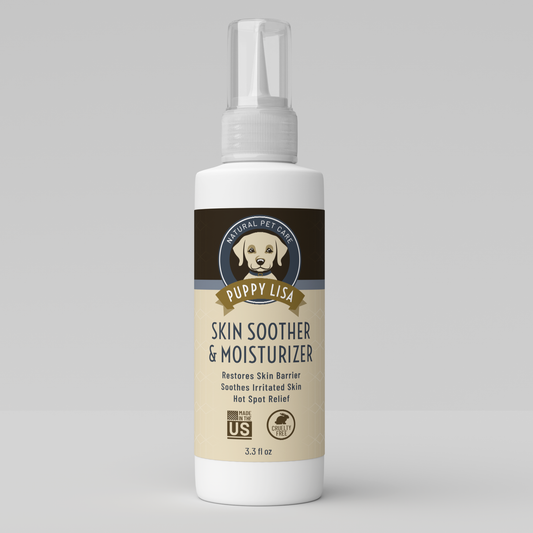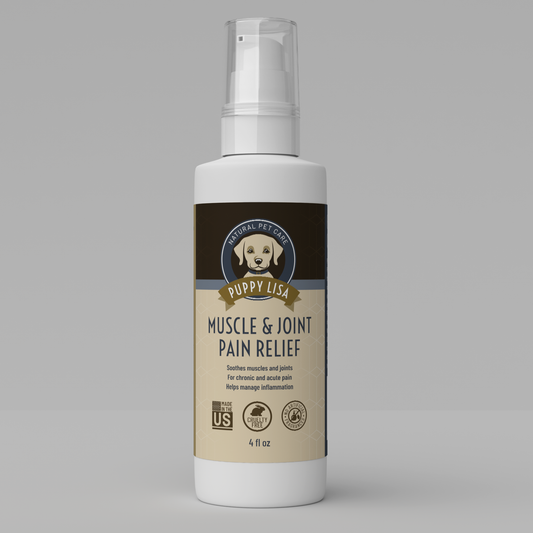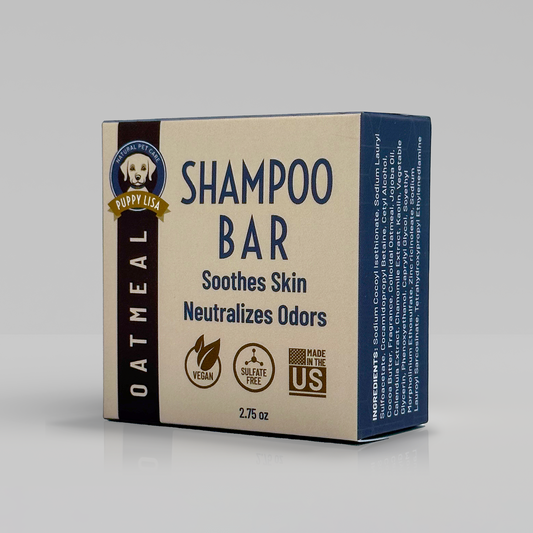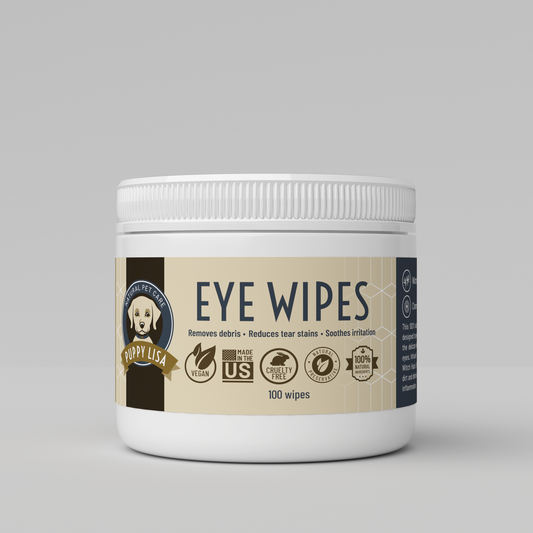Introduction
As a dog owner, it can be heartbreaking to see your furry friend experiencing anxiety. Whether it's due to separation, loud noises, or unfamiliar situations, anxiety can take a toll on your dog's overall well-being. Fortunately, there are several ways to help calm an anxious dog and promote a more relaxed state of mind. In this blog post, we will explore various tips and tricks for managing your dog's anxiety, including the use of CBD for pets as a potential option.
Identifying the Signs of Anxiety in Dogs
Before we dive into the solutions, it's essential to recognize the signs of anxiety in dogs. Some common indicators include:
- Excessive barking or whining
- Panting or drooling
- Pacing or restlessness
- Hiding or cowering
- Destructive behavior (e.g., chewing, digging)
- Urinating or defecating in the house
- Trembling or shaking
If you notice any of these signs, it's crucial to take action and help your dog find relief.
Create a Safe Space
One of the most effective ways to calm an anxious dog is to provide them with a safe, comfortable space where they can retreat when feeling overwhelmed. This can be a crate, a designated room, or a cozy bed in a quiet area of your home. Make sure to include your dog's favorite toys, blankets, and other comforting items to help them feel secure.
Establish a Routine
Dogs thrive on routine, and having a predictable schedule can help reduce anxiety. Establish a daily routine that includes regular feeding times, walks, playtime, and rest. This consistency can provide your dog with a sense of stability and help them feel more at ease.
Exercise and Mental Stimulation
Regular exercise and mental stimulation are crucial for managing anxiety in dogs. Physical activity helps release endorphins, which can promote a sense of calm and well-being. Engage your dog in daily walks, runs, or playtime to help them burn off excess energy and reduce stress. Additionally, provide mental stimulation through interactive toys, puzzle feeders, and training sessions to keep their mind occupied and less focused on anxiety-inducing triggers.
Positive Reinforcement Training
Positive reinforcement training can be an effective tool for helping your dog cope with anxiety. By rewarding calm behavior and gradually exposing your dog to anxiety-provoking situations in a controlled manner, you can help them build confidence and learn to manage their fears. Consider working with a professional dog trainer who specializes in positive reinforcement techniques to develop a personalized plan for your dog.
CBD for Pets: A Natural Option
In recent years, CBD for Pets (cannabidiol) has gained popularity as a natural option for managing anxiety in both humans and pets. CBD is a non-psychoactive compound found in hemp plants that has been shown to have calming effects on the body and mind. When considering CBD for your anxious dog, it's essential to choose a high-quality, pet-specific product from a reputable brand. Look for CBD oils, treats, or chews that are formulated specifically for dogs and contain no THC (the psychoactive compound found in marijuana). Always consult with your veterinarian before starting your dog on any new supplement, including CBD, to ensure it's safe and appropriate for their individual needs.
Other Natural Remedies
In addition to CBD, there are several other natural remedies that may help calm an anxious dog. These include:
- Calming pheromone products (e.g., collars, diffusers)
- Herbal supplements (e.g., chamomile, valerian root)
- Essential oils (e.g., lavender, bergamot)
- Massage or acupressure
- Soothing music or white noise
As with CBD, always consult with your veterinarian before trying any new natural remedies to ensure they are safe and suitable for your dog.
Seek Professional Help
If your dog's anxiety is severe or persists despite your best efforts, it may be time to seek professional help. Consult with your veterinarian or a certified animal behaviorist to develop a comprehensive treatment plan tailored to your dog's specific needs. In some cases, prescription anti-anxiety medications may be necessary to help your dog find relief and improve their quality of life.
Conclusion
Dealing with an anxious dog can be challenging, but with patience, understanding, and the right tools, you can help your furry friend find calm and happiness. By creating a safe space, establishing a routine, providing exercise and mental stimulation, using positive reinforcement training, and exploring natural options like CBD for pets, you can make a significant difference in your dog's overall well-being. Remember, every dog is unique, and what works for one may not work for another. Be patient, stay consistent, and don't hesitate to seek professional help when needed. With love and support, you can help your anxious dog thrive.
Technical Research
Anxiety is a common problem in dogs that can manifest in various ways, such as excessive barking, panting, pacing, trembling, hiding, or destructive behavior¹. There are many potential causes of anxiety in dogs, including separation from owners, loud noises (e.g., thunderstorms, fireworks), unfamiliar people or animals, changes in environment or routine, and medical issues¹. Identifying the signs and triggers of a dog's anxiety is the first step in helping them find relief.
There are several strategies that can help calm an anxious dog, such as²:
- Providing a safe, comfortable space (e.g., crate, bed) with favorite toys and blankets
- Establishing a consistent daily routine for feeding, exercise, and rest
- Engaging in regular exercise and mental stimulation through walks, playtime, and interactive toys
- Using positive reinforcement training to build confidence and manage fears
- Trying natural remedies like calming pheromone products, herbal supplements, essential oils, massage, or music
- Consulting with a veterinarian or animal behaviorist for personalized treatment plans, which may include anti-anxiety medications in severe cases
One natural option that has gained popularity for managing anxiety in dogs is CBD (cannabidiol), a non-psychoactive compound found in hemp plants³. CBD has been shown to have calming effects on the body and mind by interacting with the endocannabinoid system, which helps regulate mood, sleep, appetite, and pain³. When considering CBD for an anxious dog, it's important to choose a high-quality, pet-specific product from a reputable brand that contains no THC (the psychoactive compound in marijuana)³. CBD can be given to dogs in the form of oils, treats, or chews, but it's crucial to consult with a veterinarian before starting any new supplement to ensure safety and appropriate dosing³.
While there is no one-size-fits-all solution for calming an anxious dog, a combination of strategies tailored to the individual dog's needs can make a significant difference in their overall well-being. With patience, consistency, and support from their owners and veterinary professionals, anxious dogs can learn to manage their fears and lead happy, relaxed lives.
(1) Anxiety in Dogs - Symptoms, Causes, & Treatment | PetMD. Accessed 3/22/2023.
(2) 10 Ways to Help Your Dog With Anxiety | BeChewy. Accessed 3/22/2023.
(3) CBD for Dogs: Everything You Need to Know | PetMD. Accessed 3/22/2023.
(4) Microsoft Bing Research





